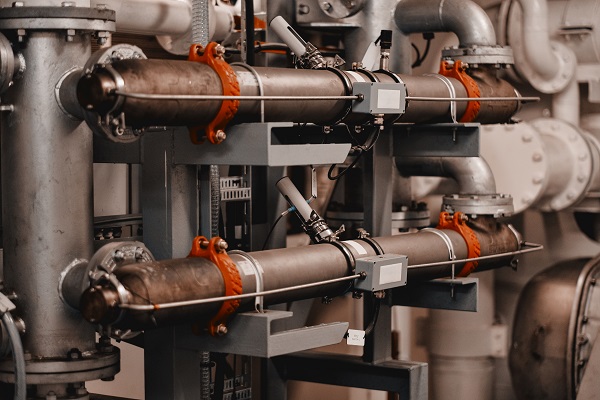Posted: Thursday, 4 July 2024
The maritime industry is continually evolving, driven by the need for compliance with stringent international regulations and the pursuit of operational efficiency. One area of significant development is Ballast Water Management Systems (BWMS). These systems are essential for controlling the spread of invasive aquatic species, which can be detrimental to marine ecosystems and biodiversity. Among the various technologies available, UV-based ballast systems have gained prominence due to their effectiveness and efficiency.
Understanding Ballast Water Management Systems
 Ballast water is essential for maintaining the stability and balance of ships. However, it can also be a vector for transferring invasive species from one part of the world to another. To mitigate this, the International Maritime Organization (IMO) introduced the Ballast Water Management Convention, requiring ships to manage their ballast water to prevent ecological harm.
Ballast water is essential for maintaining the stability and balance of ships. However, it can also be a vector for transferring invasive species from one part of the world to another. To mitigate this, the International Maritime Organization (IMO) introduced the Ballast Water Management Convention, requiring ships to manage their ballast water to prevent ecological harm.
Starting from 8 September this year (2024), all vessels subject to the BWM Convention are required to have a D-2 compliant ballast water treatment system. This system must be capable of limiting the discharge of viable organisms to fewer than 10 organisms of 50 µm or larger per cubic metre of water, and fewer than 10 organisms of 10-50 µm per millilitre of water.
Despite a two-year grace period provided by the Experience Building Phase under Resolution MEPC.290(71), during which operators are not penalised for non-compliant ballast water discharge until 2026, ships may still be detained. Inspectors can detain vessels if they find that BWM systems are poorly maintained, improperly operated, or inadequately documented.
Recent Advancements in BWMS
Recent advancements in BWMS technology have focused on improving treatment efficacy, reducing operational costs, and ensuring compliance with regulatory standards. Some of the notable developments include:
- Enhanced UV Disinfection: UV-based systems have seen significant improvements in terms of lamp efficiency and operational life. New medium-pressure UV lamps offer higher doses of UV light, ensuring more effective disinfection of ballast water.
- Automated Monitoring Systems: Modern BWMS are now equipped with advanced monitoring systems that provide real-time data on water quality and system performance, enabling ship operators to maintain compliance effortlessly.
- Hybrid Systems: Combining UV treatment with other methods, such as filtration or chemical treatment, provides a robust solution that ensures maximum effectiveness against a wide range of organisms.
Why UV-Based Ballast Systems?

UV-based ballast systems offer numerous benefits that make them an attractive choice for ship operators:
- Effective Disinfection: UV light is highly effective at inactivating microorganisms without the use of harmful chemicals. This makes it a safe option for both the environment and the crew.
- Operational Efficiency: UV systems are relatively easy to operate and maintain. They do not require extensive handling of chemicals, reducing the risk of accidents and the need for specialised training.Compliance: UV-based systems help ships comply with the IMO regulations by providing a reliable method for treating ballast water. Their efficacy has been well-documented and is recognised by regulatory bodies worldwide.
- Environmental Benefits: Since UV treatment does not involve chemicals, it eliminates the risk of chemical residues entering the marine environment. This makes UV systems a more environmentally friendly option compared to chemical-based treatments.
- Cost-Effective: operational costs of UV-based systems can be lower than other methods due to reduced maintenance requirements and the absence of chemical purchasing and handling costs.
The Future of UV-Based BWMS
As the maritime industry continues to innovate, the future of UV-based BWMS looks promising. Ongoing research and development are likely to yield even more efficient UV lamps and more sophisticated control systems. With increasing emphasis on sustainability and environmental protection, UV-based ballast systems are poised to play a crucial role in the future of maritime operations.
For ship operators looking to invest in BWMS, UV-based systems offer a compelling blend of effectiveness, compliance, and operational efficiency. Alpha-Purify's range of UV lamps and accessories are designed to meet the highest standards, ensuring your fleet remains compliant and efficient.
For more information on our UV-based solutions for ballast water management, Contact Us today. Our team of experts is ready to assist you in finding the best solutions for your needs.